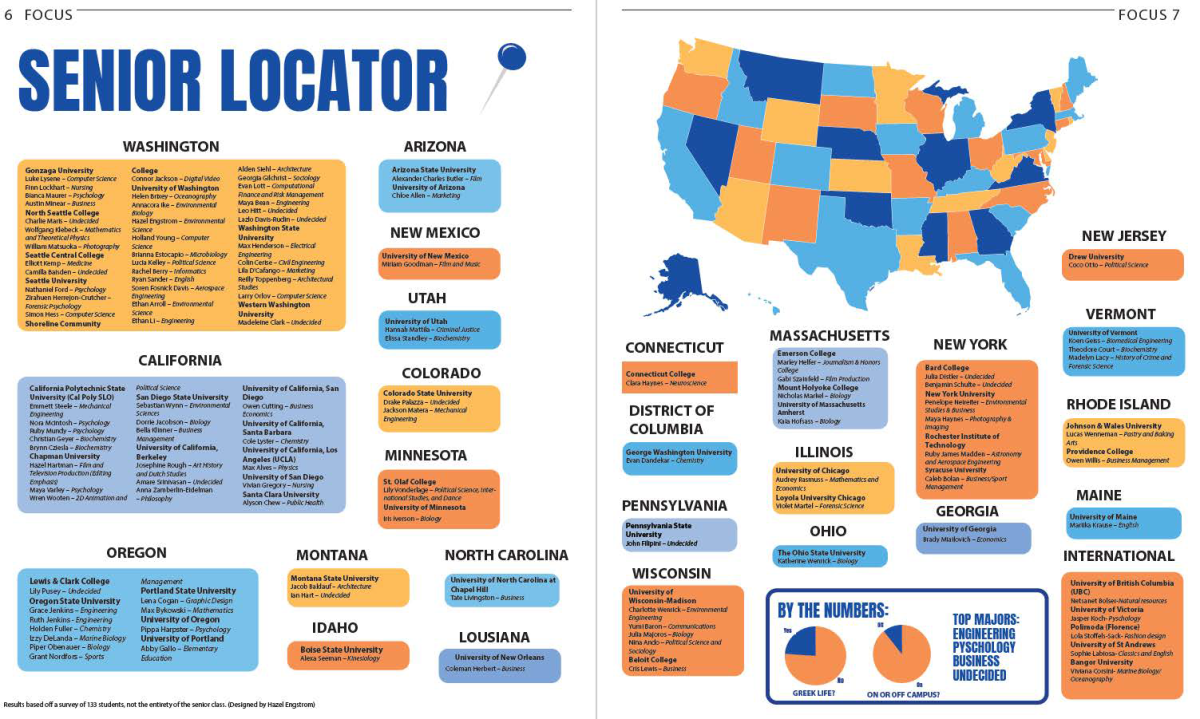Disability history isn’t taught in schools: this needs to change
February 15, 2023
Most people have never thought about the fact that each October, Washington schools are breaking state law by not teaching disability history to students. Though this law should be better recognized and enforced, it isn’t the only reason disability history should be taught in the classroom, and not teaching disability history in schools is harming both the students, and our society.
About 15 years ago, a group of high school students in Washington State were advocating for legislation that would result in October becoming a month where, in schools, it would be required for disability history to be taught to students. The legislation was passed in 2008.
At the time, the legislator said that teaching students about the important contributions to society made by people with disabilities would result in more acceptance and inclusion of disabled people, help reduce ableist harassment, and make it more likely that students with disabilities would remain in school, but there is one problem. This legislation is not enforced, and most teachers do not talk about disability history in the classroom at all.
The legislation did not give teachers any resources or information to use when teaching this to their students, and a large number of Washington teachers don’t realize this legislation exists. This needs to change.
Teaching disabled students about their community’s history leaves them with feelings of pride and belonging. In an article for The Washington Post, Haben Girma, a deafblind lawyer and activist talked about her experiences with learning about Helen Keller when Girma was young.
“If my school hadn’t taught us about Keller, I might have gone in a different direction entirely,” Girma said. “When I tell people about the path I did take — law studies at Harvard University and work as a disability rights advocate — they think back to their own lessons on Keller. Learning her story sparks something students carry with them into adulthood.”
Girma also emphasizes the fact that having Keller be the sole disabled historical figure introduced in the classroom isn’t enough.
“Of course, relying on a single story to represent the disability community is in itself a problem,” Girma said. “The disability community is diverse, full of rich stories of talented people improving their communities.”
For non-disabled students, the lessons in disability history are just as valuable. It can be inferred that teaching non disabled students who may or may not have ever known a person with a disability, could reduce discrimination and hurtful assumptions about disabled people.
“Just as lessons about the Holocaust were aimed at reducing religious discrimination, just as lessons about slavery were aimed at reducing racial discrimination, I believe that teaching children how disabled people were treated in important periods of history, or that historical figures were disabled, might just reduce disability discrimination, or maybe even disability hate crimes, in the future,” said Sarah Ismail, a journalist for the Guardian.
It is true that teaching disability history to students requires more time, and extra work for teachers who must plan those lessons, and educate themselves on topics which they may have no prior knowledge. Teaching this also takes time out of lessons about other history topics.
Teachers take time to teach about the diverse histories of other communities, however limited the class time is. It is irrational that educators take time to teach about women’s history, and black history, and refuse to teach about disability history because there is no time in class.
In addition, teachers not being aware of this history is just stronger proof that it must be taught. This important history cannot be erased, and if people refuse to talk about it, that is a disastrous possibility.
Teachers can also incorporate disability history into discussions about other topics. Though at first glance it seems that disabled people weren’t involved in any of the major events being taught in school, that is simply not true, and it is crucial that the next generation of scholars is taught that.
State legislation aside, teaching disability history to students in schools is extremely necessary because it impacts the way all students, whether they are disabled or not, treat people with disabilities today.

























Eileen Yardley • Apr 18, 2023 at 10:48 pm
Great article, Amelia! And I 100% support teaching more about disability rights, history and the diverse population of disabled people who have contributed to our communities and to all our content areas! Way to go, Amelia!